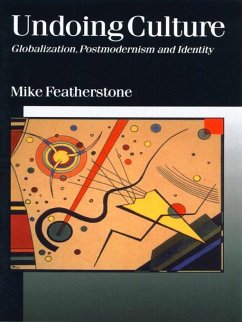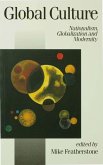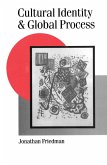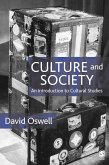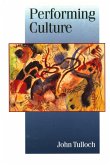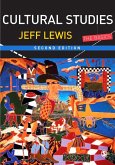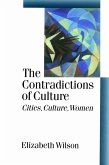Written with the clarity and insight that readers have come to expect of Mike Featherstone Undoing Culture is a notable contribution to our understanding of modernism and postmodernism. It explores the formation and deformation of the cultural sphere and the effects on culture of globalization. Against many orthodox postmodernist accounts,the author argues that it is wrong to regard our present state of fragmentation and dislocation as an epochal break. Existing interdependencies and power balances are not so easily broken down.
Nonetheless some important cultural changes have occurred since World War II. In particular, the book examines some of the processes which have uncoupled culture from the social; the erosion of the ideal of the heroic life in the face of the onslaught from consumerism and the deformation of culture; and the rise of new forms of identity development. It explains why culture has gained a more significant role in everyday life and also why it has come to preoccupy the Academy in recent years.
Mike Featherstone looks at the effects of the multiplication of cultural goods and images on our ability to read culture and develop fixed meanings and relationships. He highlights the importance of the global in attempting to cope with the objective difficulties of cultural overproduction. The book concludes that the rise of non-Western nation-states with different cultural frames produces different reactions of modernity, making it more appropriate to refer to global modernities.
Nonetheless some important cultural changes have occurred since World War II. In particular, the book examines some of the processes which have uncoupled culture from the social; the erosion of the ideal of the heroic life in the face of the onslaught from consumerism and the deformation of culture; and the rise of new forms of identity development. It explains why culture has gained a more significant role in everyday life and also why it has come to preoccupy the Academy in recent years.
Mike Featherstone looks at the effects of the multiplication of cultural goods and images on our ability to read culture and develop fixed meanings and relationships. He highlights the importance of the global in attempting to cope with the objective difficulties of cultural overproduction. The book concludes that the rise of non-Western nation-states with different cultural frames produces different reactions of modernity, making it more appropriate to refer to global modernities.
Dieser Download kann aus rechtlichen Gründen nur mit Rechnungsadresse in A, D ausgeliefert werden.
`What David Chaney has called the "cultural turn" in recent sociology is more than ably reflected and pursued in this thoroughly admirable text by Mike Featherstone. Of course, this should cause little surprise; Theory, Culture & Society, with which Featherstone is so involved... has provided much of the space and encouragement for the sociological examination of the cultural. Yet Undoing Culture demonstrates that Featherstone's importance to the cultural turn goes far beyond his institutional position as an enabler.... There can be little doubt that sociologists of culture and their students will find much of merit and stimulation in Featherstone's work' - The Sociological Review `Featherstone argues that globalization and modernization each hold two contradictory aspects: one toward increasing order and the other toward change and chaos. In this interesting and important book, he focuses primarily on a neglected aspect of modernization as a world culture of competing differences, power struggles, and cultural prestige.... Featherstone's analyses of prominent social theorists from Baudrillard to Bauman is impressive. This is a worthwhile discussion of postmodernity and modernity' - Choice

